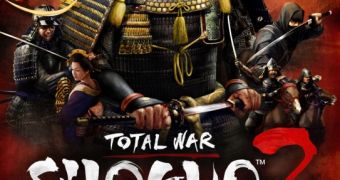Japan is a country that in its modernity has very clear rituals that need to be followed for certain occasions, and this was even more true in the Country at War period that Total War: Shogun 2 is tackling.
The developers at The Creative Assembly have chosen to portray the customs in three major ways: through the research tree and the progression of the generals, with the diplomacy screen and the specific actions like hostage exchange, and through the special uses of agents like the metsuke, the ninja, the monk and the geisha.
This last custom’s specific game mechanics is the most interesting, with the power that agents have in Shogun 2 reflecting the importance the leaders and the population placed upon the mythical powers of the ninja and on the presence of holy men.
And players need to also pay attention to all agents and plan ahead in order to make sure that their purely military assaults are not thwarted by demoralization from monks or by assassination from ninja.
For the players that expand the ninja is the worse threat, as nothing can quickly replace a capable general that leads his troops into enemy territory, so the presence of metsuke, basically the counter intelligence operatives of the moment, is very much needed.
I lost a couple of prized generals in my first few campaigns, especially to the clans of central Japan, who seem more inclined to use nefarious ways of conducting warfare.
Since then all my generals have metsuke joining them on the campaign map as soon as financially possible, but the temptation is big to also set them to oversee a province and boost its income.
I rarely use ninja because they seem dishonorable, but I found monks to be very important, first to roll back the wave of Christian small clan conversion and then to add late game happiness to my cities, which seem to always be a bit out of food.

 14 DAY TRIAL //
14 DAY TRIAL //